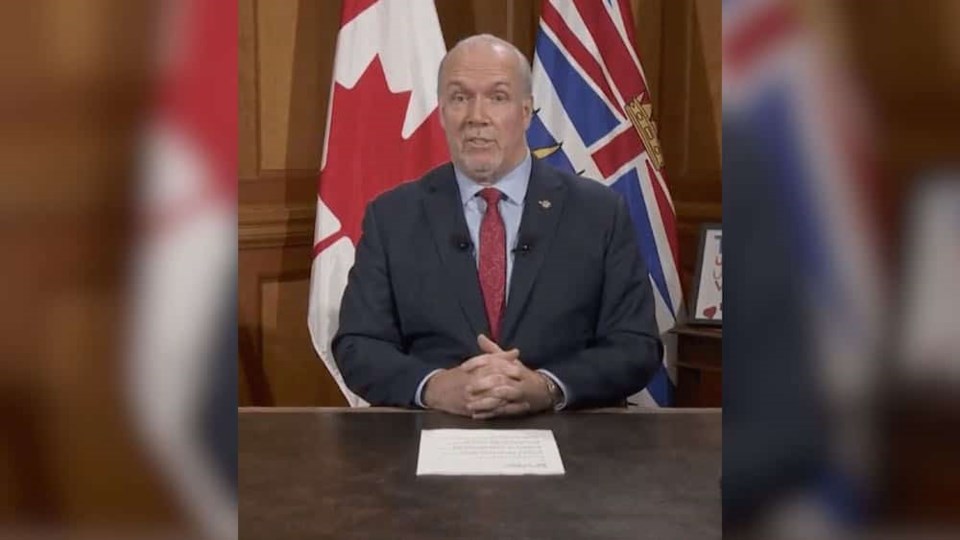By Nelson Bennett and Hayley Woodin
What happened: The provincial government released guidelines on Wednesday that will shape how sectors of B.C.’s economy are to re-open over the following weeks and months.
Why it matters: The province is in the first phase of a four-phase restart plan that will stagger the re-opening of the economy.
B.C.’s economy will restart in four phases, with the first order of business being the resumption of elective surgeries, personal care services, like dentistry, hair salons, retail and the reopening of provincial parks for day use starting in mid-May.
But concerts, conventions and other large gatherings -- phase four – could continue to be banned for one to two years, as their resumption are contingent on a vaccine being developed, the development of herd immunity or a new drug to treat the COVID-19 virus.
Nightclubs and casinos have fallen into a grey zone, and it's not clear when they might be able to reopen.
“This is not a return to normal … we’re going to a new normal," said Premier John Horgan.
B.C.'s plan for restarting the economy and social activity, unveiled Wednesday, sketches out the stages of what businesses, services and activities can resume in stages.
The first phase is already in effect, and covers businesses like essential services and limited child care services.
The second phase starts in mid-May, and includes:
- small family gatherings allowed (two to six people)
- elective surgeries, out patient clinics and diagnostic tests
- dentistry, physiotherapy, chiropractic, massage therapy and in-person counselling
- hair salons and barbers
- retail businesses
- restaurants and pubs
- museums, art galleries and libraries
- provincial parks for day use
- beaches, sports fields and other outdoor spaces
- transit services
- sports and recreation
- child care
- offices
- some voluntary resumption of in-class instruction for K-12
The third phase will roll out between June and September, but only if COVID-19 transmission rates continue to decline or remain low. They include:
- hotels and resorts (June)
- provincial parks and overnight camping (June)
- movie theatres and symphonies (July)
- film and TV production resumes (July)
As for education, the plan envisions K-12 schools reopening in September. Until then, there will be more use of online learning, with some limited -in-class learning for K-12 and post secondary education.
Phase four includes large concerts, conventions, festivals and other large gatherings, which won’t be allowed until there is a vaccine, a treatment or herd immunity.
It is expected that a vaccine could take a year or two before it is developed, approved and widely available.
The reopening of businesses may not be straight-forward. Retailers and restaurants, for example, need to demonstrate they have plans that conform to public health guidelines for things like physical distancing.
As for work, those who can work from home are encouraged to continue doing so. Those businesses that need to recall employees are asked to stagger shifts, or otherwise try to limit the number of employees they have at a given time in an office.
Generally speaking, work places and gatherings should continue to keep numbers below 50 at a time.



